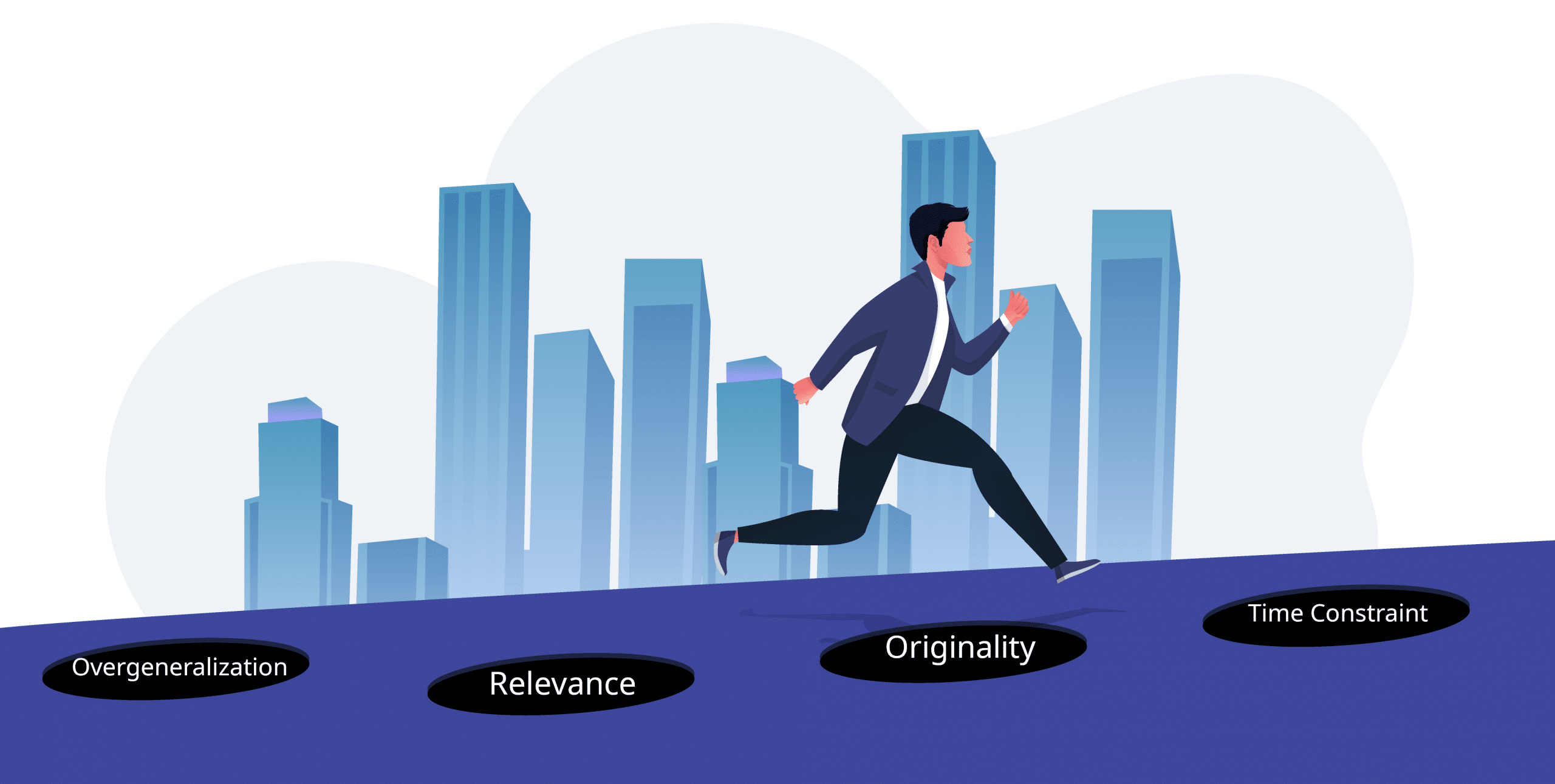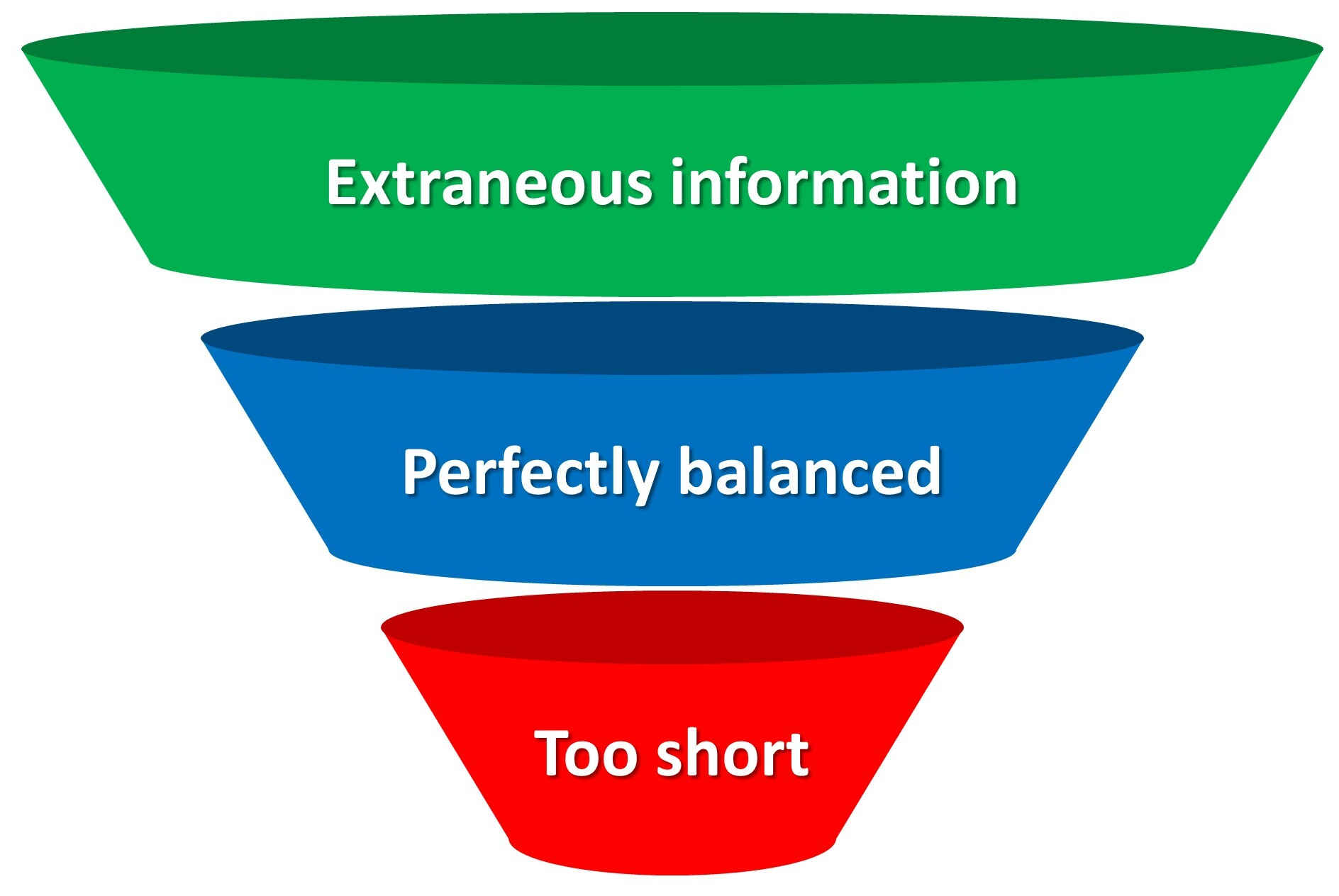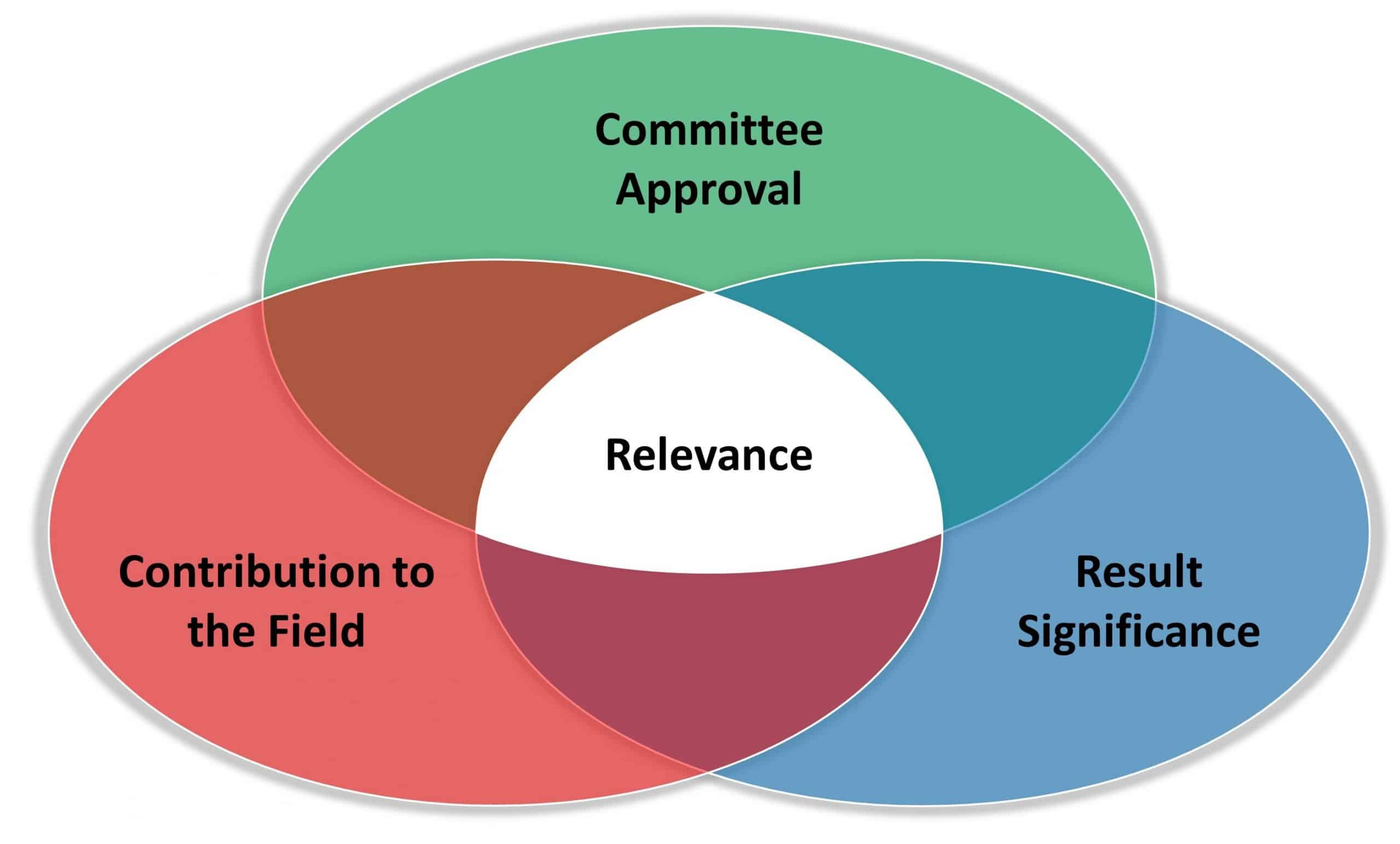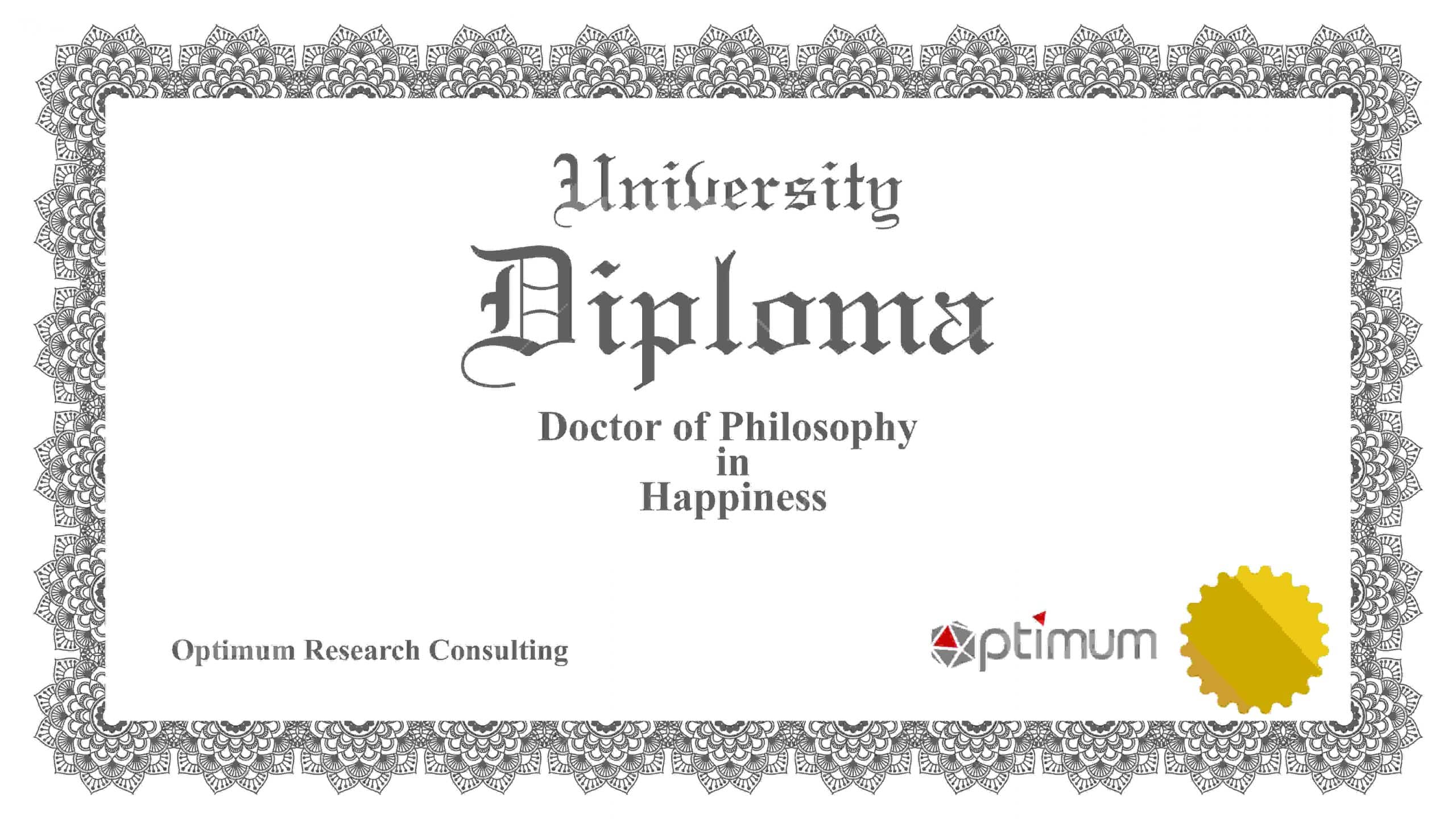Topic Selection
Selecting a research topic and developing the foundation of doctoral research study is challenging! It has many boxes to check: It must be relevant to your field of study, original (not previously explored in the same way), aligned with your committee’s expectations, and matched with a methodology fitting your access to data. In this way, the topic development process can be both exciting and intimidating at the same time! At Optimum Research Consulting, our dissertation consultants are ready to nurture your excitement by working with you to select a topic that you are passionate about and that will contribute to the body of knowledge in your field of study. Our expert dissertation coaches can also help relieve the anxiety that often comes with this step! We do this through our extensive experience which will help you avoid what we call the Common Pitfalls of Topic Selection.

The Common Pitfalls of Topic Selection include:
- Narrowing down too much: The topic chosen might be too specific, making it difficult to find enough research and information to support the need for the study (i.e., the research gap).
- Overgeneralization: The topic might be too broad, making it challenging to focus and define the study’s scope and objectives.
- Relevance: The topic might not align with your research interests or your program or specialization, making it hard to maintain motivation and focus.
- Availability of resources: The topic might require data or resources that are difficult or impossible to access, creating a roadblock when you reach the methods development stage.
- Originality: The topic might have been widely researched, making it impossible to find a current and significant research gap to address.
- Time constraint: The topic might be too complex or time-consuming, making it difficult to complete the study within your given deadline.
Given these pitfalls, it’s crucial to choose a topic that is relevant, feasible, and manageable, while still being interesting and challenging. It’s a lot to do all at once!
Please enter your name and email, and a member of our team will reach out to you ASAP.
Let’s break down the Common Pitfalls of Topic Selection further.
Narrowing down too much:
If a dissertation topic is too narrow, it can create several challenges for the researcher:
- Limited research: There may not be enough research available on the narrow topic, making it challenging to gather sufficient evidence to support the study. In other words, it works better for there to be a research gap instead of a research chasm!
- Lack of significance: The narrow topic might not be significant enough to make a meaningful contribution to the field, making it challenging to convince others of the study’s value.
- Narrow audience: The narrow topic may only be of interest to a small and specific audience, making it challenging to disseminate the findings and make a broader impact. A lack of external validity or transferability can sink a study!
- Lack of relevance: The narrow topic might not be relevant to current problems, making it less valuable and important to others.
- Lack of originality: The topic might be extensively researched, creating difficulty for finding new and original contributions to make.

Overgeneralization:
If the topic selected for a dissertation is too general, it can also lead to several problems:

- Lack of specificity: Overgeneralizing can lead to a lack of specificity in your research, making it difficult to clearly define your research questions and hypotheses.
- Inadequate data: Overgeneralizing can lead to collecting and analyzing data that are too broad, making it difficult to draw meaningful conclusions and make valid inferences.
- Inaccurate conclusions: Overgeneralizing can result in inaccurate or unsupported conclusions, as the data may not accurately represent the population or phenomenon being studied. This is a problem with internal validity.
- Lack of rigor: Overgeneralizing can weaken the rigor of your research because it may not be possible to properly control for extraneous variables or account for potential confounding factors.
- Difficulty in replicating results: Overgeneralizing can make it difficult for others to replicate your results because the study may not be well-defined or may lack sufficient detail.
It is important to avoid overgeneralizing in a dissertation by carefully defining your research question, collecting and analyzing appropriate data, and making conclusions that are well-supported by the evidence.
It is also important to strike a balance between a narrow and broad topic to ensure that you have enough material to work with while also addressing a current and significant problem and research gap. A topic that is too narrow might not provide enough research or be relevant, while a topic that is too broad may be too complex and challenging to manage. The ideal topic should be narrow enough to allow for focused research but broad enough to allow for sufficient exploration and meaningful results.
Again, this is a difficult needle to thread! At Optimum, our dissertation coaches can assist by working with you to build a roadmap that reveals a clear path.
We can also help ensure you avoid the other Common Pitfalls of Topic Selection:
Relevance:
A dissertation topic that is not relevant to the student’s field of study may lead to several issues:

- Lack of committee approval: If the selected topic is not relevant to your degree program, you may not gain approval from their committee. As a result, you’ll need to start all over—however far along you are in the process!
- Lack of contribution to the field: A topic that is not relevant to your field of study will have limited scientific contributions to the scholarly body of knowledge within your field.
- Difficulty justifying the significance of results: It will be difficult to justify the practical significance of the results if your topic is not relevant to their field of practice.
We’ve seen doctoral candidates get stuck for all of these reasons! While it is common to hit a roadblock right away, in the form of failure to get approval for the topic, it’s often that candidates get to some later stage before committee members notice issues–that means you’ll have traveled a long way before having to start over. At Optimum, we provide help with the direction of your dissertation from the start. We will help plan your research, which qualitative or quantitative methods, and other considerations to ensure you never get stuck.
Availability of resources:
Lacking the resources to finish a dissertation can result in several consequences:
- Delays: Lacking the resources you need to complete your research can cause delays in finishing your dissertation and earning your degree.
- Poor quality work: Without adequate resources, you may be unable to conduct a thorough and rigorous study, which can result in lower quality work and weaker conclusions.
- Reduced scope: If you lack resources, you may have to reduce the scope of your research, limiting your ability to address the full range of questions or problems you wanted to study.
- Increased stress: Lacking resources can cause added stress and frustration, making it more of a struggle to complete your dissertation. Importantly, this adds both time and money, as you must stay in the process for longer and pay tuition to do it.
- Loss of motivation: Without the resources you need to complete your research, you could lose your motivation or experience writer’s block.

Originality:
When choosing a dissertation topic, students may face several challenges related to originality:

- Overcrowded research areas: Some research areas may already be saturated with numerous studies, making it difficult to carve out a research gap to address.
- Lack of creativity: It can be a struggle with coming up with unique ideas or finding a new angle on a well-researched topic.
- Limited access to resources: It’s challenging to conduct original research if you have limited access to data. This is a critical issue–one that is often overlooked during the initial topic selection process!
- Fear of originality: It’s common to avoid choosing an original topic for fear that it may not be well-received or may not meet academic standards.
- Pressure to conform to expectations: There is a lot of pressure in academia, and you might feel the need to conform to expectations and choose a topic that is deemed acceptable by your advisor or department, rather than one that truly interests you.

Time constraint:
There are several factors that can cause time constraints when writing a dissertation:
- Limited funding or support: Funding for graduate programs can be limited, and you likely have to balance your time between conducting research, writing, and working. Indeed, the dissertation is often a full-time job, and if you already have one, bandwidth becomes a problem.
- Other academic commitments: You may have other academic commitments, such as teaching or coursework, which can take up valuable time.
- Life events: Life happens, and personal or family emergencies can take up time and energy.
- Research challenges: Conducting research can be time-consuming and may involve overcoming various unexpected challenges, such as issues with recruitment, data collection, and analysis.
- Writing difficulties: Writing a dissertation can be a complex and time-consuming task, and effectively expressing your ideas or finding the right words is difficult.
It’s important for doctoral candidates to manage their time effectively, prioritize their tasks, and seek support from their advisor and peers if needed, in order to meet their deadlines and complete their dissertations in a timely manner.
Unfortunately, peers are often just as busy, and committee members and other faculty can be busier still. The result is that many candidates feel alone while trying to navigate all of the challenges that come with topic selection. Here at Optimum Research Consulting, our dissertation consultants take a collaborative, hands-on approach to help students select and develop a dissertation topic that fits both their interests and program of study. We can assist you with selecting a relevant dissertation topic and gaining quick and stress-free approval!
Thankfully, there are best practices that, when applied carefully, can help you avoid all of the common pitfalls. While thoroughly understanding the research and identifying areas where original research can be conducted, it’s possible to find a gap in the literature, for instance, by scouring the limitations and recommendations sections in existing research to identify areas where original research is needed.

Through our vast experience, we’ve developed a process that allows candidates to avoid common pitfalls during the gap-finding process and all the steps to follow, resulting in a solid foundation for a rigorous qualitative or quantitative study:
- Conduct a thorough review of existing literature in the field to identify the gap. Oftentimes, students can find a gap in the literature by reviewing the limitations or recommendations for future research.
- Develop the problem statement, starting with a clear, demonstrable social or practice problem and ending with the identified research gap.
- Construct the purpose statement using a template like this one: “The purpose of this [method] [design] study is to explore (qualitative)/examine (quantitative) [research gap].”
- Develop the research questions by dividing the purpose into its component parts and making them interrogative.
Of course, most candidates must develop more than this foundation at the start of the dissertation process. Other elements include the theoretical framework, significance, background, nature of the study, definition of terms, and assumptions and limitations. We can point the way forward to be sure you reach approval quickly!

